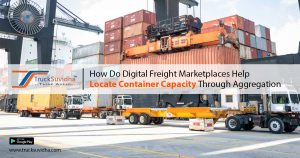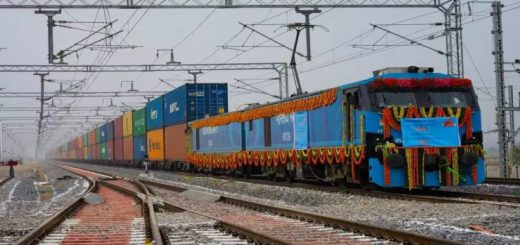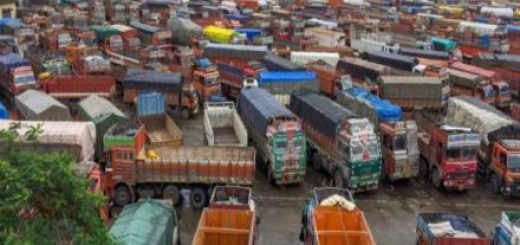How Do Digital Freight Marketplaces Help Locate Container Capacity Through Aggregation?
One of the major issues logisticians and managers of ocean freight face is the acquisition of container capacity. In order to facilitate international trade, it is essential for maritime freight transportation to set aside space with ready-to-load containers for imports and exports. As technology has evolved to alter the nature of shipping, so have the ways in which shippers find capacity. The concept is the same whether you call it a digitally enabled marketplace or a restricted capacity procurement procedure. It is an online marketplace that links shippers with goods and carriers with space. This streamlines the process for all parties and creates a better strategy for handling international shipments. In summary, digital freight marketplaces use aggregation as a cutting-edge method of procurement to assist shippers in swiftly and efficiently locating container space.
What Is a Digital Freight Marketplace?
A digital freight network connects shippers and carriers to guarantee container capacity by utilizing machine learning, automation, and other software services. A computerized freight connection assists shippers in locating container capacity despite market changes. A digital goods marketplace assists carriers in locating high-quality loads, as well as those that generate the most income and require the least amount of loading and handling. The idea of a digital freight marketplace revolutionises the ocean freight transportation industry—and for good reason—with a strong focus on technology and innovation. This equates to quicker scheduling and bookings in the context of maritime transport, which aids in the acquisition of container capacity.
How Aggregation Increases Capacity in a Digital Freight Marketplace?
In an ideal scenario, goods shipments might get scheduled and linked to capacity prior to real operations. To guarantee that all procedures flow more smoothly across the ocean and back, everything related to shipping and capacity access would get planned in advance.

But, in practise, ocean freight transportation is dynamic and ever-evolving. Ocean freight capacity is always surrounded by a certain amount of uncertainty due to factors including changing weather patterns, traffic jams, loading bottlenecks at docks, equipment and vessel failures, variable operating hours, and erratic loading schedules. When a ship sets sail, a delay at one facility could result in lost cargo.
In other cases, misunderstandings about carriage may result from a lack of understanding of Incoterm Rules and regulations. Having a variety of carriers and service providers available can assist shippers in finding capacity more efficiently and quickly, reducing the stress of the procurement process.
Leveraging a digital goods marketplace, as highlighted by Transport Topics, “can also take the burden of having to vet and onboard new partners for shippers and carriers.
Additional Advantages of Using a Marketplace to Find and Manage Ocean Transportation
A digital marketplace offers solutions to re-optimize freight networks and responds to disruptions and changes in constrained markets. Because a marketplace displays available capacity in real-time, it can react to unforeseen events and changing conditions, maximising efficiency and avoiding waste of time, money, labour resources, and capacity.
When conditions change or unanticipated events happen, a freight marketplace automatically modifies findings and recommendations. Digital marketplaces can offer the following advantages in addition to making capacity procurement simpler:
- Operational assistance. Customer support is available 24 hours a day, seven days a week to help you find capacity or answer questions as they arise.
- Increased visibility into shipment status. Real-time tracking and notifications make it simple to monitor for delays and improve visibility.
- Consolidation opportunities for LCL to FCL. Up-to-date notifications and digital agreement processes expedite the entire process.
- Integrated digital document management. Streamlined processes with instant, integrated access to digital documents such as bills of lading and customs clearance documentation.
A digital freight marketplace assists shippers and carriers in achieving resilience in a world of constant disruption. With access to the best digital goods marketplace, you can improve your ocean shipping efficiency and quickly secure ocean container capacity.
Visit www.trucksuvidha.com now!!




Recent Comments